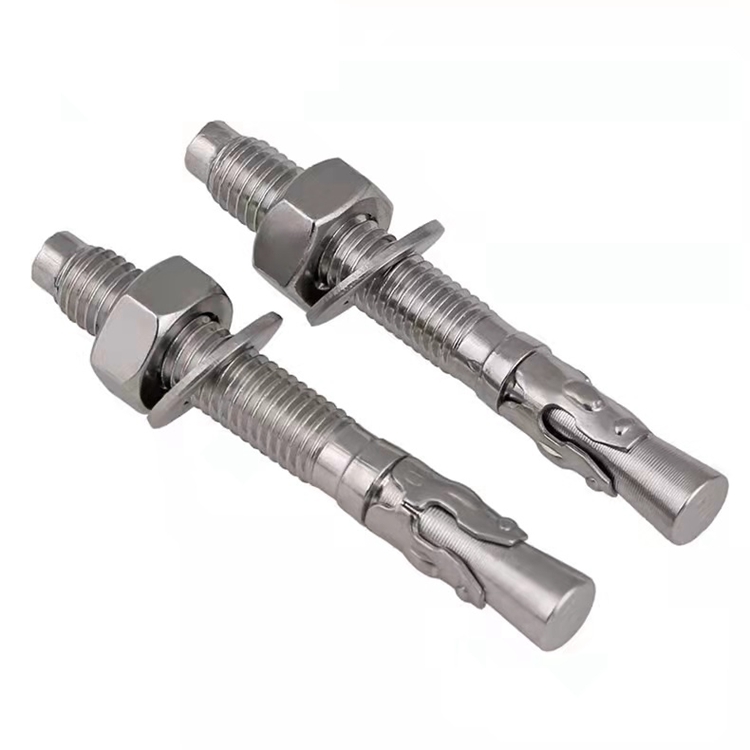famous machine bolt and stud bolt
Rhag . 15, 2024 20:21 Back to list
famous machine bolt and stud bolt
The Significance of Machine Bolts and Stud Bolts in Modern Engineering
In the realm of engineering and construction, fasteners play a pivotal role in ensuring the structural integrity and longevity of various assemblies. Among these fasteners, machine bolts and stud bolts stand out as vital components used widely across different industries. Their designs, applications, and functionalities contribute significantly to the efficiency and safety of mechanical systems.
Understanding Machine Bolts
Machine bolts are a type of fastener characterized by a threaded shaft and a flat or rounded head. They are typically used to connect two or more objects while providing robust tension. The threading on machine bolts allows for easy installation and adjustment, making them highly versatile in various applications. Typically made from steel, stainless steel, or alloys, machine bolts can withstand high levels of stress and are resistant to corrosion, thus enhancing their durability.
The head of a machine bolt is designed for different types of tools. Common types include hexagonal heads for use with wrenches and sockets, as well as slotted or Phillips heads for screwdrivers. This versatility allows for easy installation in tight spaces and enables quick assembly or disassembly without damaging the components being joined.
Machine bolts are commonly found in applications ranging from automotive engineering to the construction of bridges and buildings. Their reliability in sustaining dynamic loads and resisting shear forces makes them ideal for use in heavy machinery where safety is paramount.
The Role of Stud Bolts
Stud bolts, on the other hand, are a type of fastener that consists of a threaded rod without a head on either end. This design is especially beneficial for applications where a secure hold is necessary without the presence of protruding elements that could interfere with other mechanical components. Stud bolts are often used in conjunction with nuts and can be employed in various configurations to ensure a tight fit between two parts.
famous machine bolt and stud bolt

One of the significant advantages of stud bolts is their ability to distribute loads evenly across the joint. This feature is crucial in high-stress environments, such as pressure vessels, industrial equipment, and large machinery setups. The use of stud bolts allows for thermal expansion and contraction in materials without compromising the integrity of the connection, making them suitable for environments with fluctuating temperatures.
Stud bolts find extensive application in the oil and gas industry where they are used to fasten flanges and provide leak-proof conditions. Their reliable performance in such critical applications highlights their indispensable status in engineering practices.
Comparing Machine Bolts and Stud Bolts
While both machine bolts and stud bolts serve the same fundamental purpose of fastening components together, they do have distinct characteristics that define their use. Machine bolts are generally easier to install and remove since they feature a head that allows for direct engagement with a tool. Conversely, stud bolts require nuts for installation, which can complicate the assembly process but can also provide an advantage in terms of strength and load distribution.
The choice between machine bolts and stud bolts often depends on the specific requirements of the application. For scenarios where quick adjustments or removals are needed, machine bolts may be preferred. In contrast, for high-pressure or high-temperature applications where mechanical integrity is critical, stud bolts may be the superior choice.
Innovations and Future Trends
As technology continues to advance, the manufacturing processes and materials used in producing machine bolts and stud bolts are evolving. Innovations such as corrosion-resistant coatings, improved thread geometries for better grip, and the development of high-strength alloys are pushing the boundaries of what these fasteners can achieve. Moreover, with the increasing focus on sustainability, manufacturers are exploring eco-friendly materials and practices in their production.
In conclusion, machine bolts and stud bolts are essential components in modern engineering, each offering unique advantages that cater to various applications. Their roles in ensuring safety and stability in mechanical assemblies cannot be understated. As industries continue to evolve, the demand for reliable fastening solutions will likely grow, making the ongoing innovation in this field crucial for future engineering successes.
Latest news
-
Premium Cabinet Bolts Supplier | Wholesale & Custom Solutions
NewsAug.24,2025
-
Reliable Axle Nuts Supplier | Quality & Precision Fasteners
NewsAug.23,2025
-
Durable Bolts for Lawn Mower Handle - Top Supplier & Manufacturer
NewsAug.22,2025
-
High-Quality Bolts for Lawn Mower Handle Supplier & Manufacturer
NewsAug.21,2025
-
Reliable Axle Nuts Supplier | High-Quality Automotive Parts
NewsAug.19,2025
-
Premium Wire Bolts Suppliers | Durable & Reliable Fasteners
NewsAug.18,2025
